- Home
- Bryce Courtenay
The Silver Moon Page 6
The Silver Moon Read online
Page 6
However, let me hasten to say, my beginning involved placing a toe on the bottom rung of a white man’s ladder and not that of the black man. My most fortunate of all circumstances was that in the year 1933 when I was born I commenced life possessing a white skin and blue eyes. In the South Africa of that time I was already racially miles ahead in the process of growing to an elevated adulthood.
Now back to dying and how it feels to be doing so over a protracted period of some months. I guess I might be expected to look back in regret at the mistakes I have made which, to say the least, have been numerous. Then again, we only learn by making mistakes of commission, so inevitably, provided always we accept and act upon the lessons learned, errors of judgement are essential in the progression of any life.
To my mind, this is why starting at the bottom rung is so beneficial. Decisions made are seldom ambiguous – they either benefit or detract from the process of individual happiness, loving, fulfilment, duty, creativity and, finally, ambition of the kind that doesn’t need to attach itself to power over others or greed. All of these six desirable happenstances are, in my opinion, singularly and collectively the correct reasons for making any decision.
With regard to the aggregation of all six human endeavours, I count myself most fortunate as I can truly say that in the process of climbing the ladder of life I have enjoyed my fair share and more of all six. Hence, the certain knowledge that I am dying is no reason to bemoan the impending circumstance.
There is yet another instance where I count myself extremely fortunate. While I love my country I have never had to fight for the collective ideals of its agreements with other kindred nations. I have missed, by a matter of a few years, every war in which both my country of birth and that of my adoption have been involved. I have never known the horror it must be to kill another man for so-called ideological reasons. This, even though the justification and propaganda at the time will no doubt have correctly or incorrectly convinced my side that as we were without question the righteous and the just and it was therefore our duty to extinguish the enemy’s fiery ideology or ambitions.
I read somewhere that seven out of every ten humans murdered in the past 2000 years in the name of religion have been at the hands of the Christian faith. If correct and given the conviction that ours is the sword of righteousness, this is a sobering thought. We emphatically believe we have invariably been on the side of justice and peace and have always been the ones to espouse interracial, ideological and religious fraternity. While I am tainted by the sins of the past, I have been rewarded by not having to become physically involved in any of these conflicts of self-interest by having to put my young life on the firing line. I have always maintained that nations should only send men over fifty years of age to war. If we did this, I feel sure there would be far less conflict in the world. Old men make the decisions and send the flower of their youth to die in the name of one or another ideology, faith or territorial or greedy ambition.
Enough of my indulgent rambling on – time to return to the curiosity of dying over a roughly measurable prognosis. For the first time I am experiencing on a daily basis the ‘never again’ feeling. That is, sensing that some task or experience will never again occur in one’s life. It is a distinctly unique physical and mental catharsis, like the sudden automatic application of brakes to avoid an accident.
Together with being a writer I am also a very keen gardener. In fact, if the act of tilling the soil and growing beautiful and practical plants had been removed from my life I would have been immeasurably the poorer for this. Sowing, then seeing a tiny seedling peep out of the soil then, busting with fecundity come into bloom or eatable adulthood, then slowly commence the return circle back to seed, is to me the daily, monthly and seasonal miracle to which most people seem oblivious. For goodness sake, I even admire the tenacity of so-called weeds.
As I write, spring is just about done and summer about to commence. My spring flowering is returning to seed, the daffs slipping back into their long two-seasonal slumber. This year the tulips will have to remain underground together with the daffodil bulbs. Alas, if I should raise them ready for replanting again in autumn, I’m not sure they will be returned to the soil. Non-gardeners have the misfortune of having stressful matters on their minds.
Now as I transplant the seedling from the greenhouse into the warming, soon-to-be summer soil, I get this pervasive ‘never again’ feeling, knowing that I am unlikely to eat from the veggie patch or see the seedlings I’m propagating come into bloom. Of all the ‘never agains’ this is for me one of the most poignant.
Years ago, while in the United Kingdom and strolling through Sherwood Forest paying homage to my childhood enchantment with Robin Hood and his band of merry men, I stooped and pocketed a single acorn. On my return to Australia it lay long forgotten in a desk drawer to be discovered some nine years ago after I had decided to move to a lovely valley on the Central Coast where it was my intention to build a ten-acre garden on its only eyesore, a site that had been completely destroyed of its natural vegetation by a long-since-abandoned brick- and earthworks.
My idea being to demonstrate that no matter how inhospitable the land may appear, with sufficient love and care and a bit of knowledge it can be returned to its former natural condition. My intention was to grow only native plants. But with the now some forty-years-old acorn in my pocket I thought to myself, ‘What the hell?’ With no expectations I planted it as well. You can guess the rest.
The land restoration took some five years to complete and I left a still young but almost fully restored landscape to move to the Southern Highlands and a lovely home with a thirty-five-year-old beautiful garden, taking the five-year-old oak tree with me.
After three years we moved to Canberra and this week the new owners take over the property in Bowral. That is, they move in without my ‘Robin Hood oak’ now some ten feet or three-and-a-half metres tall. In two days it will be planted in the backyard of our Canberra home and yes, I will never see it drop its leaves in autumn, face the winter cold, observe its cheery budding in the spring and green-leafed and optimistic throw of summer shade as it sets about the hundred-year task of from a single acorn growing into a mighty oak.
It’s been a lovely journey. At six I suffered from a bout of tonsillitis and the local town doctor decided he would take me to Pietersburg, a larger town some seventy miles further north where the facilities existed to operate and remove my tonsils. His name was Dr Hennie Venter and he owned a chocolate-brown 1939 Chevrolet with a dicky-seat at the back where the boot is usually to be found. Instead of the boot you withdrew a seat into the open air. To my immense joy he allowed me to ride in the dicky-seat all the way to the hospital.
As a small five-year-old child bullied mercilessly in the Boys Hostel I simply couldn’t imagine any person wealthy enough to own such a splendid carriage, and on my dicky-seated return two weeks later, upon arriving at the Boys Hostel, I plucked up the courage to ask Dr Venter, ‘Sir what must I do to become as rich as you?’
I recall his laughter and then his reply, ‘Son, the greatest helping hands you will ever possess are attached to the ends of your wrists.’
This was my first incentive to reach out and grab the bottom rung of the ladder, then the second, until finally, now at the age of seventy-nine, I stand remarkably at what I perceive to be the last rung. By this I mean I have achieved all I set out to do. I hasten to add I have enjoyed a good deal of help and good fortune brought about by the wisdom and generosity of friends I have known and loved. I have possessed more in every one of the six human endeavours than I could possibly have deserved. My life is completed.
However, there remains only one further ambition, or rather it would appear, one exception to total fulfilment. Now that my use-by date is almost upon me my last remaining ambition, though I am discovering it is an Australia-wide bureaucratically imposed impossibility, is to be buried vertically in a cardboard box and then have a ghost gum planted over me. No tombsto
ne, no name plaque, no given place except a place in the Australian bush of sunshine and cold, wild wind and calm, where fire renews growth, somewhere natural where my flesh and bones might be useful to the eternal renewal of life.
Now, wouldn’t that be a way to go – there grows the ghost gum of Bryce Courtenay.
The Editor,
The Canberra Times,
10th November 2012
Dear Editor,
Together with the enclosed this may appear to be one of the more unusual letters you receive this week and certainly an explanation is necessary.
Some twenty-four years ago I was given, as part of a winter promotion by your newspaper, a sloppy joe inscribed with your logo. At the time I was the creative director of Patterson Bates Advertising. As it happened this was the winter in which I wrote The Power of One and I wore your sloppy joe with every page completed. With the surprising success of my first novel I continued to wear it every winter for the next twenty-one novels, coming to believe that without it I couldn’t possibly write a bestseller.
Twenty-one number-one bestsellers in twenty-three years and some twenty-five million books in twenty-eight languages later, I have written my last book, and in several months my ‘Use-by date’ will arrive and, at the risk of mixing my metaphors, I am in the process of sweeping the autumnal leaves from Memory Lane.
It occurred to me that you might like to have the sloppy joe? Perhaps an arrogant thought? If so, please dispatch it to the garbage bin. I simply wanted you to know that superstition is alive and well and that I am grateful to you for a promotional gift that may well be the longest surviving garment ever given away by a newspaper. The fact that it has survived in constant use for so long is a testimony to both its quality and also that of the newspaper who gave it to me. I apologise for the disrepair and the darning – somehow, apart from dry-cleaning, it didn’t seem right to attempt to tart it up.
Enclosed is a signed preview copy of my latest – and final – book.
Yours sincerely,
Bryce Courtenay
YOU POSSIBLY HAVEN’T GIVEN a great deal of thought to that most unpretentious flower of them all – the sunflower. She’s big, clumsy-looking, open, surprisingly shy and modest – a thoroughly nice girl who doesn’t expect to be noticed at a party along with the roses, tulips, daffs and other female exotica.
Never truly a wallflower, she always helps clear up afterwards and can usually be found up to her elbows in soap suds laughing and cheerful as she does the dishes while the other girls find dark corners to giggle and cuddle with their boyfriends.
However, take a closer look. Big, yes, but the smile never leaves her face. Look into it and you see the pure simplicity that is genuine beauty, the personification of the sun itself.
I beg you, this year plant a single sunflower seed preferably in your front garden in a part that receives lots of sunlight. Then watch what happens when Miss Sunflower grows tall, smiling, facing the sun and happily greets everyone who passes by.
VIKING
Published by the Penguin Group
Penguin Group (Australia)
707 Collins Street, Melbourne, Victoria 3008, Australia
(a division of Penguin Australia Pty Ltd)
Penguin Group (USA) Inc.
375 Hudson Street, New York, New York 10014, USA
Penguin Group (Canada)
90 Eglinton Avenue East, Suite 700, Toronto, Canada ON M4P 2Y3
(a division of Penguin Canada Books Inc.)
Penguin Books Ltd
80 Strand, London WC2R 0RL England
Penguin Ireland
25 St Stephen’s Green, Dublin 2, Ireland
(a division of Penguin Books Ltd)
Penguin Books India Pvt Ltd
11 Community Centre, Panchsheel Park, New Delhi 110 017, India
Penguin Group (NZ)
67 Apollo Drive, Rosedale, Auckland 0632, New Zealand
(a division of Penguin New Zealand Pty Ltd)
Penguin Books (South Africa) (Pty) Ltd
Rosebank Office Park, Block D, 181 Jan Smuts Avenue, Parktown North, Johannesburg 2196, South Africa
Penguin (Beijing) Ltd
7F, Tower B, Jiaming Center, 27 East Third Ring Road North, Chaoyang District, Beijing 100020, China
Penguin Books Ltd, Registered Offices: 80 Strand, London WC2R 0RL, England
First published by Penguin Group (Australia), 2014
Text copyright © Christine Courtenay 2014
Illustrations copyright © Ben Ashton-Bell 2014
Cover photography by Comstock/Getty Images
Author photograph copyright © Tim Bauer 2012
Bryce Courtenay’s biographical quotations compiled from interviews with Penguin Books and inhouse archives.
The moral right of the author has been asserted
All rights reserved. Without limiting the rights under copyright reserved above, no part of this publication may be reproduced, stored in or introduced into a retrieval system, or transmitted, in any form or by any means (electronic, mechanical, photocopying, recording or otherwise), without the prior written permission of both the copyright owner and the above publisher of this book.
Cover design by Alex Ross © Penguin Group (Australia)
Text design by Adam Laszczuk © Penguin Group (Australia)
Illustrations by Ben Ashton-Bell
Cover photography by Comstock/Getty Images
Author photograph by Tim Bauer 2012
penguin.com.au
ISBN: 978-1-74348-570-5
THE BEGINNING
Let the conversation begin...
Follow the Penguin Twitter
Keep up-to-date with all our stories YouTube
Pin ‘Penguin Books’ to your Pinterest
Like ‘Penguin Books’ on Facebook
Find out more about the author and
discover more stories like this at penguin.com.au

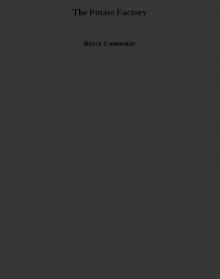 The Potato Factory
The Potato Factory The Power of One
The Power of One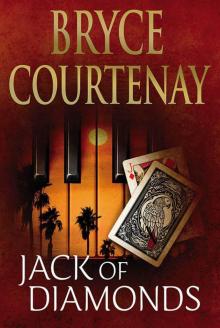 Jack of Diamonds
Jack of Diamonds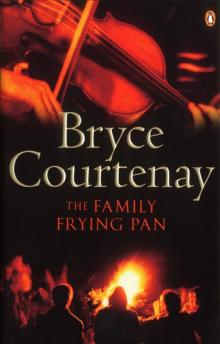 The Family Frying Pan
The Family Frying Pan April Fool's Day
April Fool's Day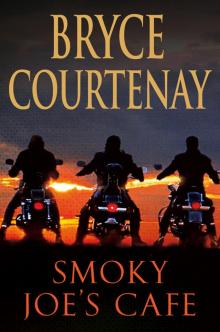 Smoky Joe's Cafe
Smoky Joe's Cafe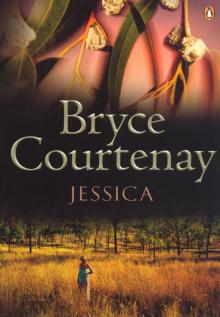 Jessica
Jessica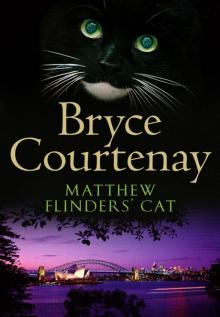 Matthew Flinders' Cat
Matthew Flinders' Cat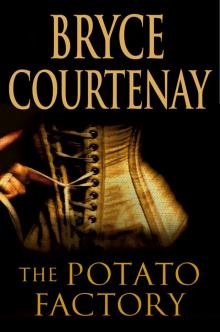 Potato Factory
Potato Factory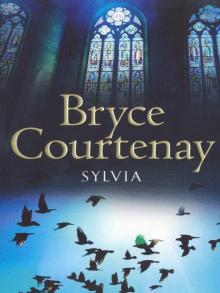 Sylvia
Sylvia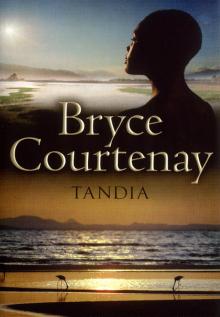 Tandia
Tandia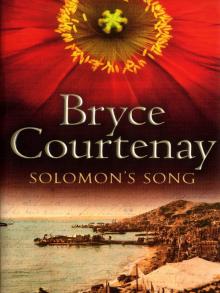 Solomon's Song
Solomon's Song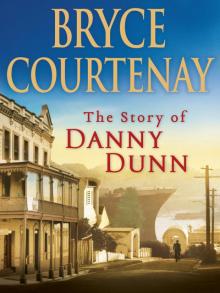 The Story of Danny Dunn
The Story of Danny Dunn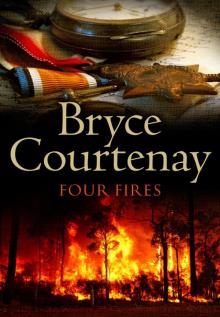 Four Fires
Four Fires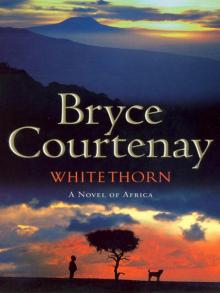 Whitethorn
Whitethorn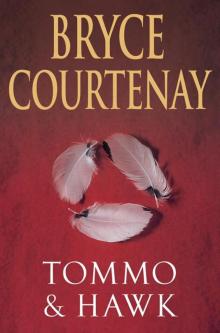 Tommo and Hawk
Tommo and Hawk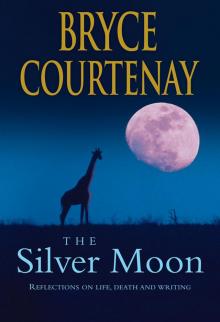 The Silver Moon
The Silver Moon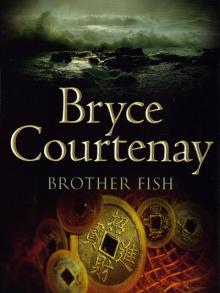 Brother Fish
Brother Fish FORTUNE COOKIE
FORTUNE COOKIE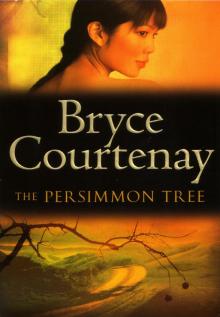 The Persimmon Tree
The Persimmon Tree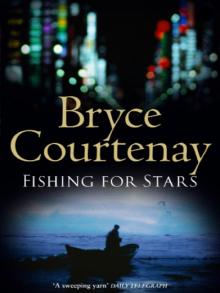 Fishing for Stars
Fishing for Stars